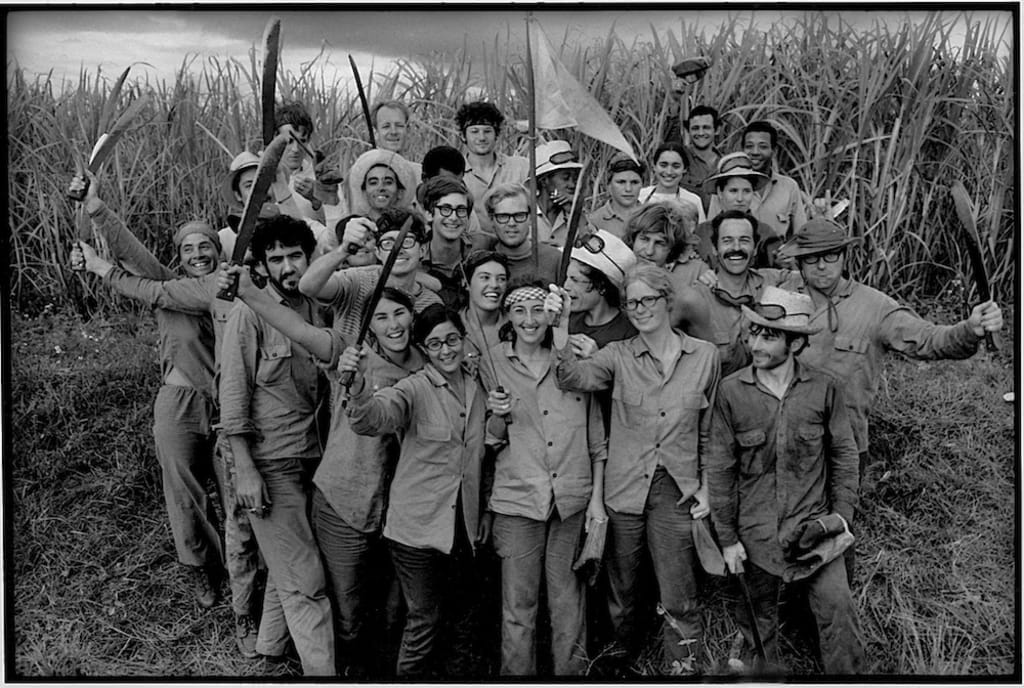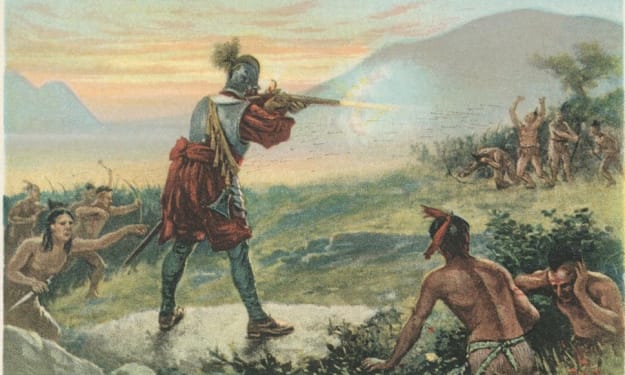American Youth in the Venceremos Brigade
A Historical Reflection

In the late 1960s members of the Students for a Democratic Society founded the Venceremos Brigade with assistance from Cuban officials. The SDS formed the Brigade to show solidarity between the American left and the Cuban Revolution. Its main purpose was to challenge the United States government’s policies towards Cuba, especially the embargo emplaced after the 1953 revolution. This played out at a time when the Soviet Union was competing with China for who would be the locus of authority for the Communistic world. (1) The loss of the Soviet Union’s prestige as the world’s “vanguard of international socialism, decolonization, and the struggle for the emancipation of nations under Western imperialism” was due to the rise of the People’s Republic of China. (2) However, with the success of the Cuban Revolution came a new challenger to the title. It was due to Cuba’s success in stopping United States intervention that drew many Socialists to their cause. Many of these socialists came from the United States. It is by looking at diaries and interviews from the earliest American activists transported to Cuba that we will judge how effective they were as revolutionary instruments in Cuba. We will also look at how their pride, prejudice, and ignorance affected their group dynamics.
Not all that went had blinders, often they went to learn what they believed would be better ways of organizing their resistance movements back home. Volunteers like Joe Harris reflected these attitudes. Joe Harris was a black activist that saw the destinies of Americans, especially black Americans as lying outside of their grasp. In Harris’s view, “‘community control’ was meaningless unless the people controlled things.”(5) Harris went to Cuba as a continuation of his path in radical politics that had begun when he was fourteen. In this, he was one of the most experienced of the group to go. But this experience did not protect him from not realizing that on a worldwide scale, he was one of the rich that he railed against as having the power under the system. Even though as a black man in 1960s America he faced oppression and abuse, his living in the United States afforded him the privilege to make the journey to Cuba. There was no greater display of this privilege than on their boat ride over to Cuba.
In her journal, Lucy Marx writes about how on their boat ride over to Cuba, the Americans spend most of their time bickering. The whites spend much of their time self-flagellating over their guilt for how the world is. And the blacks spend most of their time attacking the other groups. Meanwhile, caught in the middle are those of Asian and Latino descent. This is only compounded by the blacks attacking any group that disagrees with them. (6) Unfortunately, their bickering and infighting went back to before they even left for Cuba. For while they were still in the United States, the Brigade ran into issues with manning, when they realized they had recruited too many people. This led to the uncomfortable conversation of who to cut. While most agreed that white men should cut first, because they “had predominated on the first Brigade,” they generally advocated for their racial group. (7)The American attitudes towards race predominate the discussion in the diaries and interviews of the Brigadists. Meanwhile, the Cubans spend much of their time cleaning up after or corralling the Americans. We see this in Marx’s diary when she writes, “And as the Cubans cleaned out the bathroom, we continued to bicker about who was guilty.”(8) During the boat ride over the Americans were wholly unaware of their privileged position in the world. as they came from a society where water was so abundant that they felt it was okay to pour out half a glass of water or to take long showers. (9) The Americans were so unaware of their privilege that they would leave their trash and clothes lying about, only for the Cubans to come behind and pick up after them. The theme of the Cubans coming by to clean up after, mediate and control the Americans would continue once they arrived and began working in the cane fields.
The American's continued lack of cultural awareness is evident when it comes to simple tasks. During their time in Cuba, the Americans make little to no attempt at cleaning up after themselves. This is due in part to the cultural conditioning of North Americans as seeing such menial work as not valuable. While this is true for most of them, some of the American youth do seem to reflect on their cultural values. On one occasion David Nadel considers that “there was a feeling that we could at least clean off our tables instead of leaving it for the Cuban workers.”(10) Then, according to Nadel, Alisia explains that Cubans do not look down on this type of work. But then in true American fashion, Nadel does not take this to mean that Cubans value all work equally, but rather that the work of the Americans is so much more important that they should not expend their energy on menial tasks. (11) The inability of the Americans to change their notions of what it means to labor, and what is valuable work undercuts their effectiveness in the cane fields. This is due to them believing it is inherently wrong to use any modern notion of efficiency or work ethic.
This is seen most when one of the Unknown Brigadists complains vehemently about one of the other Brigadists wanting everyone to shout out “the number of piles they’d cut every half hour.”(12) But later, most of the volunteers are more than willing to sit down and figure out how they could cut more cane when the critique or motivation comes from the Cubans. Part of the problem according to Garland Allen is that “work-analysis sessions were something completely new for most of us.”(13) But this has more to do with the privileged backgrounds that most of the volunteers would be coming from. For if they were working-class Americans, it is unlikely that they would have had the time or money to take up such a trip. Most working-class people in all nations are not usually concerned with going to other countries to provide free labor for a Revolution that does not concern their self-interests. But this point is only driven home further by Jim Loudermilk when he reflects on his conversation with “C”, a thirty-year-old black woman from Selma, Alabama. During their conversation, she points out “how far removed we whites are from the culture and experience of those whom we claim to help. We don’t even know white working-class people.”(14) Thus one sees how, while many in the Venceremos Brigade believed their motivations to be for a noble cause, they were often more entrenched in their issues, which led to their ineffectiveness as volunteers in Cuba.
The ineffectiveness of the American volunteers also hides one simple fact that goes unrecognized, even in their most introspective moments. That is that in many ways, the Brigadists were no better than those that made American policy towards Latin America. They were culturally unaware and spent little time or effort to understand those they were around. Rather, they came to Cuba for one thing, and one thing only. That was to absolve themselves of the guilt felt for being products of where they were born. And for most, once they had exploited the nation for this resource, they left never to return.
Thank you for reading my work. If you enjoyed this story, there’s more below. Please hit the like and subscribe button, you can follow me on Facebook, Twitter, and Instagram @AtomicHistorian, and if you want to help me create more content, please consider leaving a tip or become a pledged subscriber.
More from this author:
End Notes:
1 Daniela Spenser, The Caribbean Crisis, 77
2 Ibid., 77
3 Laura Obert, Venceremos Brigade, 45
4 Ibid., 44
5 Joe Harris, Venceremos Brigade, 45
6 Lucy Marx, Venceremos Brigade, 69
7 Glenda Cimino, Venceremos Brigade, 55-57
8 Lucy Marx, Venceremos Brigade, 69
9 Ibid., Venceremos Brigade, 69
10 David Nadel, Venceremos Brigade, 118
11 Ibid., Venceremos Brigade, 118
12 Unknown, Venceremos Brigade, 129
13 Garland Allen, Venceremos Brigade, 133-13
14 Jim Loudermilk, Venceremos Brigade, 48-50







Comments (6)
This is definitely a well deserved and well written Top Story! Congrats!
I learned something new today. Also that some people need to get over themselves and open their eyes to the real world.
Congratulations on your Excellent Top Story, well deserved
Excellent, informative and well-researched. Great article
Eric, found your story in History so informative and interesting!!! Awesome job!!! Loved it!!!❤️❤️💕
Fascinating, thoughtful article. So even as socialists, we tend to be imperialists. Volunteer in Missions projects have gotten better at including cultural exchange as part of the trip, & they've become much more accessible for working class families. Still, there's always the risk they will become paternalistic.